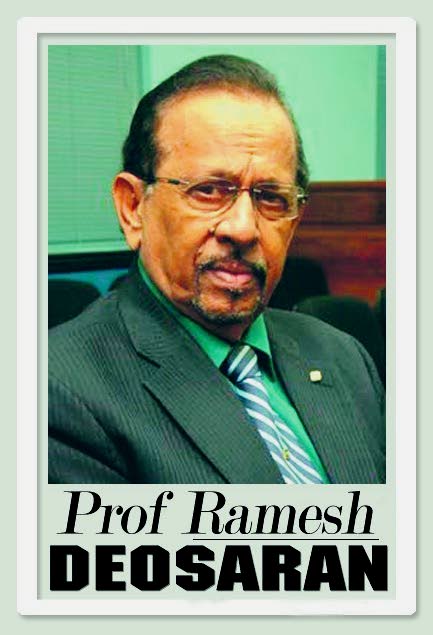Take care with no-bail laws

Once again, two weeks ago, the government and the opposition engaged in noisy, acrimonious debate over the presumed need for severe bail restrictions and the constitutional rights of citizens regarding liberty and due process of law.
Detaining a citizen who is “innocent until proven guilty” is a serious act which, if contemplated, requires careful, well-argued reasons. Without such justifications, it would appear that extensive, oppressive no-bail laws become a substitute for efficient investigation and law enforcement.
The recent Anti-Gang Amendment (2020) Bill seeking to extend the life of the 2018 act failed the three-fifths passage. Data insufficient, why not use existing laws, the Opposition argued.
There are, of course, reasons on either side, but given the serious implications of detention and inclination to false arrests, framing the innocent and victimisation, the legislative balance sought must be rational, highly proportional, and without making political advantage the higher priority. During the 2019 no-bail debate, for example, several concerns were expressed over “police framing citizens.” (In its 2017-18 report, the Police Complaints Authority reported 35 per cent of the 702 complaints against police were for abuse of authority, falsehoods and corrupt practices),
Senator Anthony Vieira recalled from his legal experience how easy it is for police to spitefully frame innocent citizens. Denying the published allegation that “he choked and threatened to kill” a Cocorite detainee last year, the police commissioner himself admitted “some uniformed officers were working to take him down” from inside.
UNC Dr Roodal Moonilal warned: “If police officers, as the Commissioner was suggesting, can attempt to frame the Commissioner of Police, who is we?”
We had this kind of troubling debate, for example, with the powerful, all-embracing Anti-Gang Act No 10 of 2011, which required a three-fifths parliamentary majority. Under it an accused could be detained for 72 hours, then a further court-ordered 144 hours on charges from a list of 26 offences, including gang membership, possession of firearm or ammunition for injury, shooting, robbery, etc.
When you add the period of pre-arrest investigations to this total of 216 hours of detention, this should be enough to proceed to court.
In fact, if effective use was made of these new legislative and operational tools, our public safety would be better off today. This 2011 act promised to “make provision for the maintenance of public safety and order through discouraging membership of criminal gangs and the suppression of criminal gang activity.” That so?
However, the crime and security officials of the government advised another Bail Amendment Act (No 11 of 2011). This made another severe attack on the substantive 1994 Bail Act, for example, by reducing judicial discretion, and extending no-bail periods and the list of affected offences. Detention on first appearance was 120 days, not hours, before making a judicial application for bail.
What were the specific reasons, inside and outside law enforcement for these “draconian” extensions?
The government’s violence and gang reduction objectives again proved to be costly and less than successful. This 2011 amendment had a five-year sunset clause. The government in 2019 again collided with the judiciary regarding bail and sentencing with its proposed Bail (Amendment) No 2) Bill, 2019. This amendment to Section 5 of the 1994 Bail Act sought to deny bail for up to 120 days to those found with prohibited weapons such as bombs, grenades, automatic weapons or trafficking in such weapons. That is, if no evidence is presented during this period. Threats of “losing political support” seemed to encourage opposition support for the bill.
Given the very serious nature of these extensive detentions, the public deserves clear, evidence-based reasons for them, not threats, petty accusations and emotional scaremongering.
A clear explanation was disturbingly missing in the debate for the worrying increase in illegal firearms and ammunition.
What about the Customs Division, where over 60 per cent of containers, for various reasons, are not checked, some left to importers’ discretion.
What about our porous, permissive borders?
What about the supply side of criminals, where are these young gangster-type criminals coming from?
The criminogenic supply from the education system, though noted by the PM, is growing in both intensity and terror. And this, while the Remand Yard remains unhealthy, congested and racially imbalanced. Be careful now, please.


Comments
"Take care with no-bail laws"